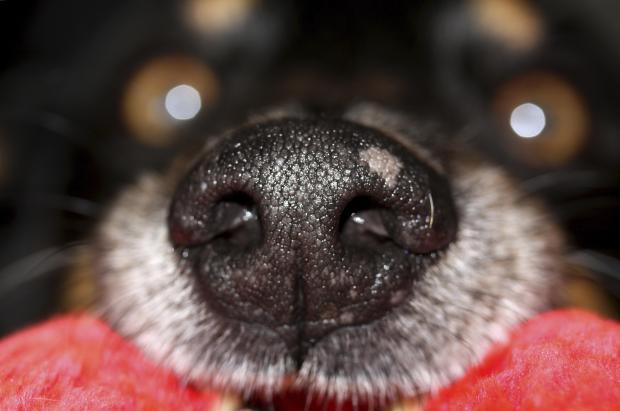Humans’ sense of smell is ‘just as good as other mammals’ including DOGS, scientist claims
Expert says our noses are much more sensitive than many people believe

DOGS may be a nose ahead of us but the human sense of smell is not to be sniffed at, a leading expert has claimed.
The idea a keen sense of smell is an animal rather than a human trait is a Victorian myth with no scientific basis, argues US neuroscientist Dr John McGann.
He points out that people can discriminate between around a trillion different odours, not a trivial number.
And the human olfactory bulb, the brain region that processes odour signals, is large and houses as many neurons as it does in many other mammals.
Dr McGann, from Rutgers University, who makes his case in the journal Science, said: "The fact is the sense of smell is just as good in humans as in other mammals, like rodents and dogs.
"We can detect and discriminate an extraordinary range of odours; we are more sensitive than rodents and dogs for some odours; we are capable of tracking odour trails; and our behavioural and affective states are influenced by our sense of smell.
He points an accusing finger at Paul Broca, a 19th century brain surgeon and anthropologist, who promoted the notion that humans have an impoverished olfactory system.
The idea even influenced Sigmund Freud, leading him to insist having a poor sense of smell made humans susceptible to mental illness.
"It has been a long cultural belief that in order to be a reasonable or rational person you could not be dominated by a sense of smell," said Dr McGann.
"Smell was linked to earthly animalistic tendencies."
In 1879, Broca highlighted the relatively small volume of the human olfactory lobe compared with the rest of the brain.
MOST READ IN TECH AND SCIENCE
Because humans were not led by their noses, they were better able to exercise and develop their free will, he maintained.
Dr McGann pointed out that smell sense is not improved solely by increasing the size of the olfactory lobe.
He added: "Dogs may be better than humans at discriminating the urines on a fire hydrant and humans may be better than dogs at discriminating the odours of fine wine, but few such comparisons have actual experimental support."
A number of studies had suggested different species may simply be more sensitive to different scents.
For instance, humans were better than dogs at detecting a compound found in bananas.
The idea that humans have a poor sense of smell was boosted by genetic studies which showed rats and mice have genes for around 1,000 different smell receptors, compared with about 400 in humans.
Smell is much more important to us than we think, strongly influencing human behaviour, eliciting memories and emotions, and shaping perception, said the neuroscientist.
It plays a major and sometimes unconscious role in the way we interact with others, choose a mate, and decide what we like to eat, he stressed.
We pay for your stories! Do you have a story for The Sun Online news team? Email us at [email protected] or call 0207 782 4368







